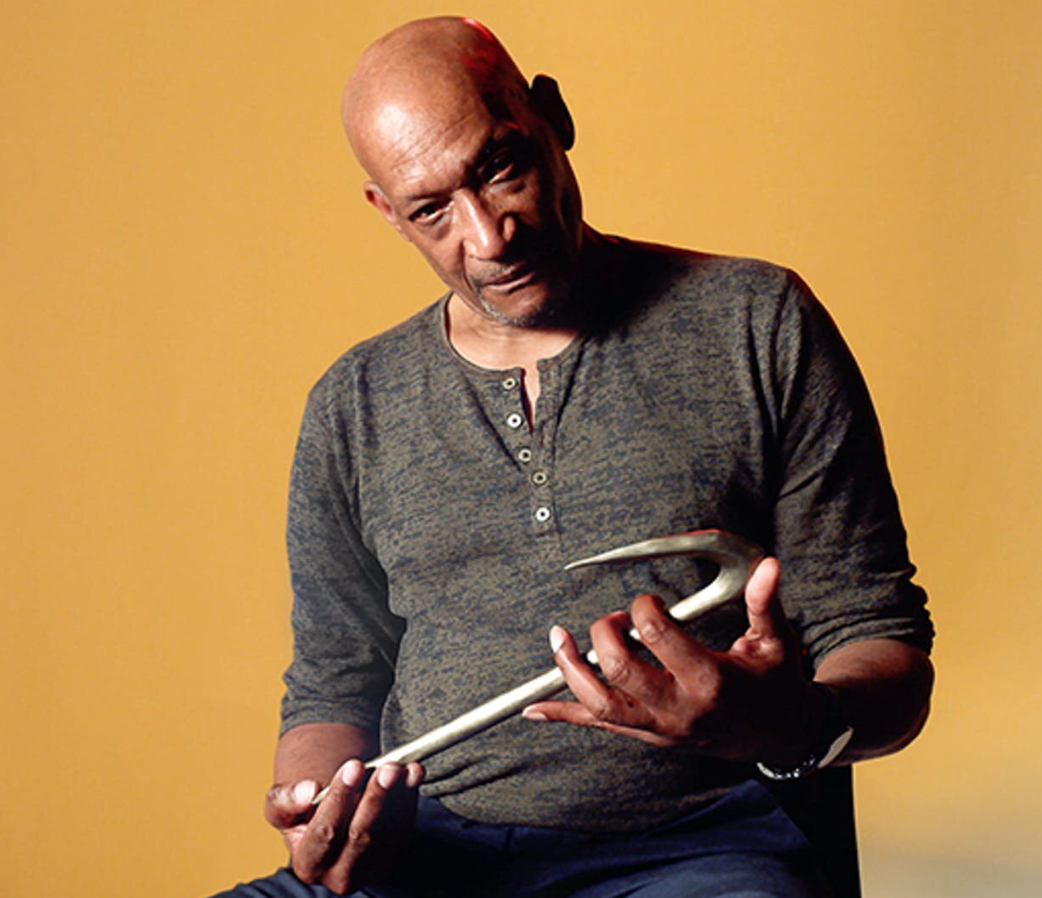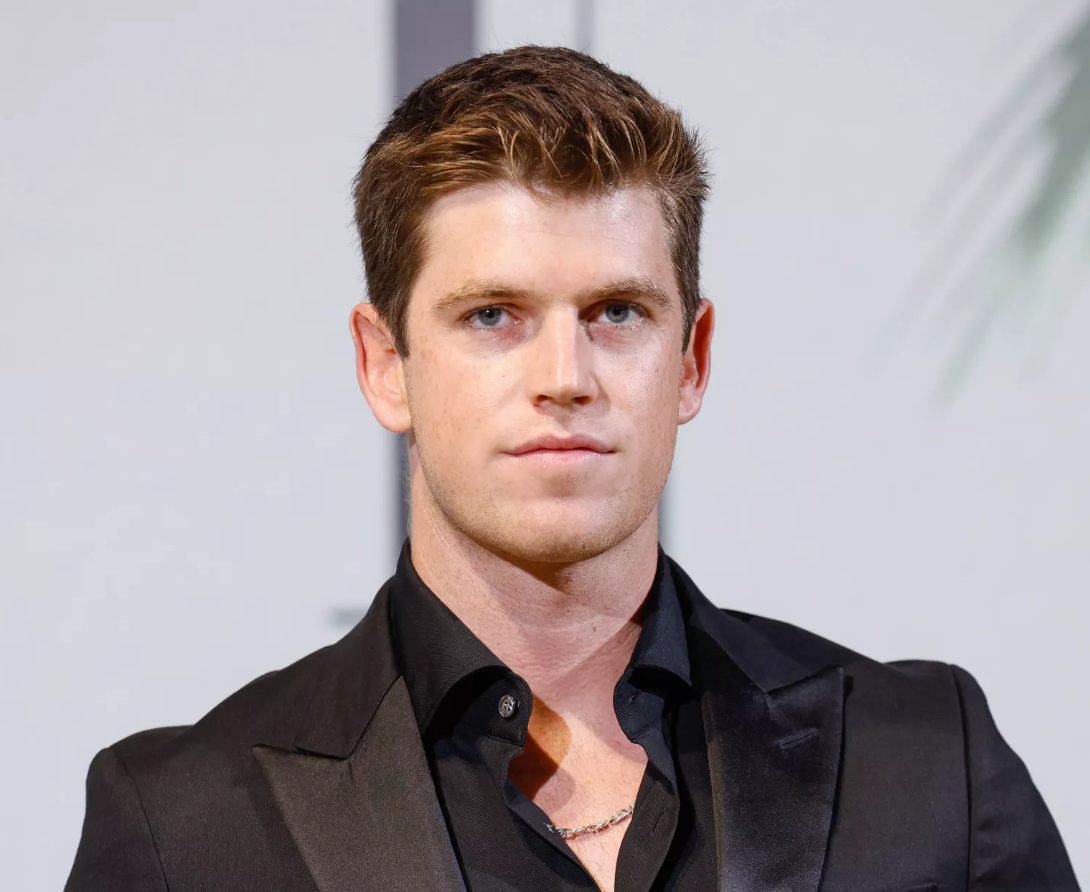Ashok Wankhade is one of the most well known and interesting Marathi journalist’s in the capital. He is a multifaceted personality. But his life story of how he got into journalism and reached the position he is in today is even more engrossing. He currently has a popular YouTube channel Dhobighaat that gives the ‘news behind the news’ and is a regular panellist on debates on multiple channels such as ABP News, India TV and so on.
He is equally active in print journalism. Wankhade was born in Yavatmal in 1962. His father Mahadeorao Shivajirao Wankhade was a primary school teacher. His mother Shantadevi was also a strong influence on him. After marriage, his father was posted in Arni. He did not look upon teaching as a mere profession, but as his passion. Through his novel approach of imbibing value-based education but not losing track of practical vocational skills required to survive in the outside world, he soon became a popular teacher and rose to the position of Headmaster. He did not believe that the school was just the government’s responsibility, but rather that of the entire community.
He actively involved the villagers in the affairs of the school. Those who had migrated to the city were asked to sponsor scholarships in their name, others in the village ensured accountability in the functioning of the school. The children themselves were taught to be self reliant. They cultivated a vegetable garden on a land donated by villagers near the school and sold the produce, especially spinach. The remuneration was used for improving the infrastructure of the school such as building a music room. The children would sing the national anthem to live music everyday. No wonder, it was awarded as one of the top three model schools in the country. Wankhade’s father was an influential figure in the village, resolving all kinds of disputes from familial to political. Such was his authority, that rarely did he leave class to greet an officer who had arrived, at times being called ‘arrogant’ for his adherence to rules. Deorao Patil invited him to become the headmaster of a school at his Netive Loni . Such was Bapu’s discipline, as he was affectionately called, that one of the relative of Deorao Patil then MP was a teacher under him and was also use to pick up and drop Patil to the taluka place in the car, the teacher would have to take an official leave to do so.
Bu gönderiyi Instagram’da gör
Wankhade and his four brothers grew up in this environment, all excelling in their academics and topping district scholarship exams.
One was admitted in the Chikhaldara Public School, while Wankhade himself studied at the Sainik school in Satara. It was his dream to join the Armed Forces of the country someday. In 1980, he stood third in the all India merit for the 64 NDA exams, but could not clear the medical for his choice naval aviation. He appeared for the exam the second time with the Army has his preference, but his selection letter never reached his village. Determined not to give up, he knocked on every possible door from Mumbai to meet the CM to Delhi to meet MoS Defence Shivraj Patil through his acquaintance Uttamrao Patil. In Delhi, his frequent visits to the Army headquarters revealed that an Army officer’s son had superseded him on the waiting list. He even met Atal Bihari Vajpayee who showed him utmost support. Eventually, MoS Patil offered to include him in the next batch, but unwilling to take the loss of seniority from his earlier batchmates, Wankhade decided to move on with his education.
He moved to Indore at his elder brother’s place and took admission for commerce at the most renowned institute in the city, Indore Christian College. It was known for producing the future political leadership of Madhya Pradesh. Wankhade was pulled into the political storm when on the admission day itself he approached a senior to help him secure a place. He was made a member of the ABVP and just like that his admission was done. He then went to meet Lalit Porwal, who is a BJP leader in the city today. He told him to contest elections for the Class Representative of first year. All of this was new, yet exciting for Wankhede.
Campaigning among huge crowds, giving speeches before the students came naturally to him. It was not just issue based, rights-based politics though. Considerable muscle power, influence of state-level politicians, lot of monetary stakes and even the underworld in Indore were all involved. Wankhade won with a comfortable margin and became an integral part of this political crowd. It gave him the insider’s perspective and a deeper insight into the functioning of the political machine that he uses so well in his analysis today.
Bu gönderiyi Instagram’da gör
For many years, past his graduation and degree in Law , Wankhade continued to be active in these circles. Politics, the spirit of youth, arrogance, violence, self-righteousness, group conflicts intertwined to make a heady mix. The first incident that got him involved was the tussle over the control of the college hostel.
A senior BJP leader named Chamkor was killed, and it was decided that the control had to be wrested from his faction. Wankhade who was in the opposite group stayed in the hostel without their permission, and when they came to question his presence, armed with swords and knives, a mighty fight ensued. Blows, punches, blood and guns, it was a scene out of an action film. And so overnight, he became the ‘godfather’ of that hostel, the nerve centre of college politics and by extension Indore politics. Violence, crime and politics were intertwined then, and so Wankhade began to get dragged in the dirt: being picked up by police as a regular troublemaker, only to be let off when his followers smashed buses and public property. It is a past he is not proud of, but one that shaped him into who he is today because he consciously chose to forego that path.
When the judge asked him what his father does, it set into motion a process of self awareness. Wankhade felt ashamed of what he had been doing. One day a friend told him how they were discussing the vandalism and destruction of property that had been indulged into by some goons at his office. Wankhade found out that he worked at a newspaper, The Free Press Journal. When his friend informed him that ‘policewale press wale se door rehte hai’, Wankhade made up his mind that he wanted to be a journalist. He cleared the interview, where English skills were the key requirement and started off as a trainee Sub-Editor. In the beginning he was given the sports beat, which he did with all sincerity and dedication. But, it was not so easy to leave the life of politics. The year he joined, he was declared a candidate for the Presidential post of the panel.
Their alliance ‘Chhatra Ekta’ used to sweep the election and he was the key organizer. His friends tried to convince the newspaper head to relieve him of his job because otherwise he could not contest. But Wankhade refused, and urged his senior not to consider their demands. Few in the office knew about his background. He was treated as any other employee. As a trainee, he was regularly shouted at, had his work criticized and was even asked why he was wasting his time in the journalism field. But Wankhade had not entirely given up his old ways, he campaigned for the proxy candidate. At work he would think, ‘they are treating me this way, because they do not know who I am’. He was so used to wielding authority, that starting from the bottom of the ladder was a challenging task. But it is to his credit that he was determined to succeed. However, the two lives were bound to cross. A small disruption was needed to propel him to the big league. Some opponent of Wankhade threw a crude explosive at him when he was sitting in an open space of a Bar in a shopping complex just opposite the Free Press Journal Building . It became a talk of the office . The message was received, and the demeanour of the colleagues in office underwent a change as the ice was broken. They began to treat him nicely.
Bu gönderiyi Instagram’da gör
He was then assigned to the business page under the guidance of senior former Indian Express Editor Gadkari who had moved to Indore post retirement. He assigned Wankhade the task of finding out the daily prices of grains, pulses and vegetables, the daily developments in the market and the reasons behind them. Wankhade pulled all the social capital at his disposal for the task. He went to his college, gathered the boys whose fathers were vendors and using his heft, gave them the task of reporting to him the rates. One of those boys was the son of Nandkishore Agarwal, an influential vendor of grains. Curious why his son would ask for the rates, he invited Wankhade to a meeting one day.
That meeting opened Wankhede’s eyes to the inner workings of the wholesale market in India. It was comprised of the seven most influential businessmen in the city. The Hindi newspaper would report on one market daily – oil, spices, foodgrain, textiles, bullion and so on. Traders associated with each of these markets were present there. Wankhade soon became a regular in these circles and was fascinated by what he saw. The textile vendor Mr Surana would talk about conditions in Kolkata, consignments coming from Gujarat, the increasing demand for power loom. The oil vendor Kishanchandji Baheti , the biggest broker in the country, would sit with 15 telephones handling trade across the country. He was smart and well read. Every Diwali he would write a letter predicting the trends in the coming year after a scientific study and his own intuition. They seemed to have the country’s markets at their fingertips. Wankhade got deeply involved in this world and began to read the Economic Times, Financial Express and give his own insights. Using his contacts, he would find out about shipments arriving at the ports in Mumbai and report them which helped him gain acceptance among this circle.
One day, Agarwal told him how an old plot, which was traditionally earmarked for traders, was being auctioned by the Municipal Council. They provided him all the information with maps. Wankhade informed his Editor, who decided to publish it on the first page. It was Wankhede’s first by-line. He still remembers the joy and excitement, all his friends dancing and distributing sweets. The news led to suspension of certain officials. Wankhade saw the direct impact of a news given by him for the first time. He also gained the respect of the traders, whose market had been saved while the officials at Nagarpalika became cautious of him. This sense of prestige, was new for Wankhade and it was what pulled him to the profession permanently. After that, there was no looking back.
Bu gönderiyi Instagram’da gör
He was given a regular column named ‘Monitor’ where he would publish exclusive stories that would become the talking point in traders’ markets for their impact. He was given charge of a dedicated supplement ‘Eco Notes’ that was published every Friday consisting of inside news from the market, in an almost tabloid-like form. Wankhade starting gaining authority in the Business and Finance reporting field. He was made the Business Editor . He would be in office 24×7, with his other colleagues, all of them bachelors! His life began to revolve around journalism.
The owner of the newspaper, Kolkata based JK Karnani, gave a lot of freedom to his reporters, though the salary was less. He would tell them, write a story against me, I will be glad. One day, a person Wankhade had written against said to him that it was easy to criticize others, but what about your own faults, do you have any standing against your boss? He went on to inform him that the Director in-charge of the Indore office, who was Karnani’s brother-in-law, had demolished a theatre to build a complex without the requisite permissions. Wankhade confronted him, but was rudely told off. However, Wankhade was unwilling to compromise on his principles.
After investigating the news, he wrote a detailed article. Since the Editor at the time had resigned, the District reporter was temporarily in-charge. Wankhade gave him the story, but he handed it over to the Director, who cut it off in anger. When Wankhade realized it would not be published, he gave the story to prominent Hindi weekly Prabhat Kiran . It created quite a furore. And relations between Wankhadeband the Director deteriorated to the extent that FIRs were filed on minor reasons. Wankede’s political days were past him, but the contacts were not. There were threats and fights. But he chose to apologize, considering his position and propriety. Yet, he received a termination order. When J K Karnani found out, he sent a lawyer from Mumbai to find out the reality. He informed him of the ground reality and Wankhade was reinstated. He was even sanctioned a loan to buy a moped. When the Director refused to approve it later, Karnani removed his own brother -in-law from the board. Wankhade felt indebted to him for the faith and support he had shown in him. He worked hard and tried to give the most exclusive stories. When Indian Post newspaper was going to start an edition in Ahamedabad , almost the entire staff decided to join it and many left. But Wankhade felt that loyalty and professional integrity were crucial at this stage and stayed back and continued to work for the Free Press Journal.
Wankhede’s professional ambitions were on the rise and he realized that Indore was not the place to fulfil them. His seniors suggested that he should go to Delhi to fulfil his potential. He was accepted to the position of Delhi Bureau Chief at the Chautha Sansar newspaper. He did not know anyone in the city. In fact, it was the chai wallah Sanjay Gupta below the INS building on Rafi Marg that housed the offices of many newspapers, who introduced him to many senior reporters. Slowly his circle expanded. Wankhade resigned from the position due to differences with the owners.
He was in a dilemma. He could not write Hindi, and there were already many established reporters in English journalism. He knew few people in the city. How would he get his foothold? Not one to give up, Wankhade decided to write his own destiny. Looking back, he saws those were the days of struggle, but they taught him a lot. He decided to freelance in English. He would go to the Editors of all the major newspapers, Times of India, Hindustan Times and ask for assignments. They began to give him small events and his stories began to get printed. The Sunday Mail Editor offered him the assignment of doing the cover story for their magazine supplement. In his hunt for a story, Wankhadewould call PR agencies, go on the field, look for subjects. He began to get drawn into the field of entertainment due to his association with PR firms.
He realized that the new concept of Video magazine was on the rise with India Today’s Newstrack, Kaalchakra and so on gaining popularity., and Ashok Agarwal, a businessman was willing to invest. They had a team of actors and technicians but journalism knowledge was missing. Wankhade provided that. He began to handle content for them. Slowly, his network of contacts grew. It was the era of liberalisation, a revolution was beginning in the television entertainment industry, and The Sunday Observer wanted to start a channel. To start with they started a production house churning out programs for Zee TV and Doordarshan. Wankhade was a part of it. Zee TV had just been launched as an entertainment channel, but once a week they would have a business news bulletin Fiscal Fitness. Every Friday, Zee use to air this business centric program. Pritish Nandy who was heading Observer Group use to anchor the show. Wankhade began to find stories for them. He became a video journalist, pitching to the camera when the niche field was just developing.
He remembers how in those days the video would be sent to Hong Kong and then be broadcast from there. Using his own knowledge of business and finance, Wankhade began to analyze stories in a unique manner. When a popular pop star’s visit had to be covered, Wankhade spoke about record sales and the money angle to the entertainment industry. He was fortunate to have found Gopalji, his cameraman who was an experienced old hand and added value to what Wankhade did with his suggestions. Once, when they came across Ratan Tata while shooting, it was Gopalji who encouraged him to call out to him almost shouting and Wankhade sought a quote on the privatization of Public Sector Undertakings when the IISCO issue was in the news. Gopalji died in aircrash when he was travelling with Madhavrao Scindhiya . The program Fiscal Fitness became so well established that they began receiving calls from corporate houses to feature them and product launches were done on it. Wankhade enjoyed this glamour. He also began to do documentaries with colleagues such as Anuradha Prasad of BAG Films. By this time, he had also begun to earn well.
Bu gönderiyi Instagram’da gör
It was his foster sister Sangeeta Madani who introduced him to his wife-to-be Manjiri Chaturvedi. Her brother was also journalist while she herself was working as sub editor at Vama a women’s magazine in Hindi from Times of India Group. At present Manjari is Special Correspondent in National Bureau of Navbharta Times a prominent Hindi news paper of Times Group. While Wankhede’s family was supportive, hers was not very keen on their wedding. But taking her cousins and and other relative into confidence, along with his family, they got married at the Arya Samaj Mandir. Many years later, all most after 18 years it was their son Atharva who brought about a reconciliation between his grandfather and parents.
Wankhede’s foray into video journalism continued. He was instrumental in the launch of MH One News channels broadcast in Haryana, Pubjab and Himachal Pradesh as their COO. The launch of the channel was being delayed since a while when Wankhade was brought in by his acquaintance Mr. Batla. On the basis of his prior experience, and will-do attitude, he conducted a test run in a day. In a week, the channel was on air. Slowly they expanded to music and spiritual realms and launched more channels. As with all things, Wankhadeput his heart and soul into it and the channels consumed him so much that his health and family life began to get affected due to his work. He then decided to resign. Wankhade says he has always had this ability to detach, move on and not get attracted to the lure of earning more money.
One day, he got a call from ABP News asking him to comment on developments in Maharashtra politics. He was then approached by ABP Majha as well, to speak in Marathi. He was approached by India TV’s Rajat Sharma to speak about multiple topics as a panellist on his New Channel India TV . Wankhede’s deep insights, apt articulation and willingness to call a spade a spade were much sought after. He began to speak on India News and Sahara TV, News Nation, Rajya Sabha TV and Lok Sabha TV as well. He would travel from one studio to the other all day, carrying a bag with multiple kurtas. After 6 months, Wankhade realised some News Channels use to pay him and some not. He began to charge for speaking and then, as is the case in India, half the channels went away. But he was offered a contract of exclusivity by ABP. Wankhade thought it apt to consult Rajat Sharma first who was the first to take him national, rather than having him speak only about Maharashtra politics. It is to Sharma’s credit that he was very encouraging and recommended that Wankhade accept the contract, as they were unable to offer that kind of money. At the end of the three year contract, Wankhade began to speak for Lok Sabha TV as well. He also started writing for Dainik Bhaskar in Hindi.
What is his USP? Wankhade believes that his willingness to be politically neutral, is what distinguishes him. He does not alter his opinion as per the channel. Be it Hindi or English, perceived pro-government or anti-establishment, he says the same things. Also, his opinions are based on facts. He goes through about 15 newspapers in a day – English, Hindi, Marathi and Gujarati. He is constantly updated on social media as well. He maintains references, and studies them. He speaks his mind and he speaks the truth. He has the ability to corner politicians because he knows what they have said earlier.
He keeps up with the times, first it was video journalism and now it is social media. His YouTube channel ‘Whistleblower India’ has almost twenty thousand subscribers. His new YouTube channel Dhobi Ghat promises to give his readers the ‘news behind the news’ and covers a wide range of topics from foreign affairs to cyber security matters affecting the day to day life of citizens.
Due to years of living in Delhi, he has observed many politicians from up close. Lok Sabha speaker Sumitra Mahajan is like a mother to him and has supported him saying that she can vouch for his neutrality when there were allegations that he is on the Opposition’s payroll. He appreciates politicians like Nitin Gadkari who is direct and does not mince words. Gopinath Munde was caring and considerate, while Vilasrao Deshmukh gave respect to the Opposition. He fondly remembers how Deshmukh once sent him a weighing machine as gift on Diwali, saying ‘Maharashtra needs you, lose weight!’ Devendra Fadnavis calls him Bhau and discuss with him many things on politics. Wankhade claims that he learnt an art of networking from his elderly brother Abhinandan Thorat .
राम जन्मभूमि विवाद में अब हुई शिया वक्फ बोर्ड की एन्ट्री – https://t.co/8U3gsSI3jk. pic.twitter.com/8JAnkc18Vc
— WhistleblowerNewsIN (@WBNewsIndia) August 9, 2017
His inspirations through his journey have been senior journalists like Vidyadhar Gokhale who spoke what he felt and Arun Sadhu whose honesty and integrity he admired. Wankhade believes Journalism is a mission, not a job. One cannot give the excuse that the owners of their organization don’t listen, it is loyalty to the profession that is prime. Despite almost two decades in Delhi, Wankhade still does not own a house here. He says it is his limited regard for monetary and material inducements that enable him to be fearless and give him the moral conviction to speak his mind.
They all four brothers are together. Two Elder brothers have retired and younger one is engaged in Interior decoration in Maharashtra. The next generation of Wankhade have 7 members four sons and three daughters. They don’t have a concept of cousin brothers. They are together as real brothers and sisters. The elder most son Dhanraj is married and settled in Australia. Second Son Aakash is married and is at a senior position in Titan handling Mumbai, MP and Chattisgarh. Third son Palash is a known interior decorator in Pune. Fouth Son Atharva is studing in 12th at Delhi. Elder daughter Priyanka is married to ZEE 24 Taas anchor Ajit Chavan. Second daughter is HR executive in Mumbai. Third daughter Pallavi is doing a course in Architect and interior decoration at Pune.
His one weakness though, is food. He reviews new restaurants that open in the city. He is also a food tester in Delhi. He is an avid film buff. Currently, he is occupied with launching a new channel in Uttar Pradesh. I met Wankhade in 2004, with Suryakantatai Patil at Delhi I wish him all the best for future. Instagram and Twitter accounts.
Bu gönderiyi Instagram’da gör






